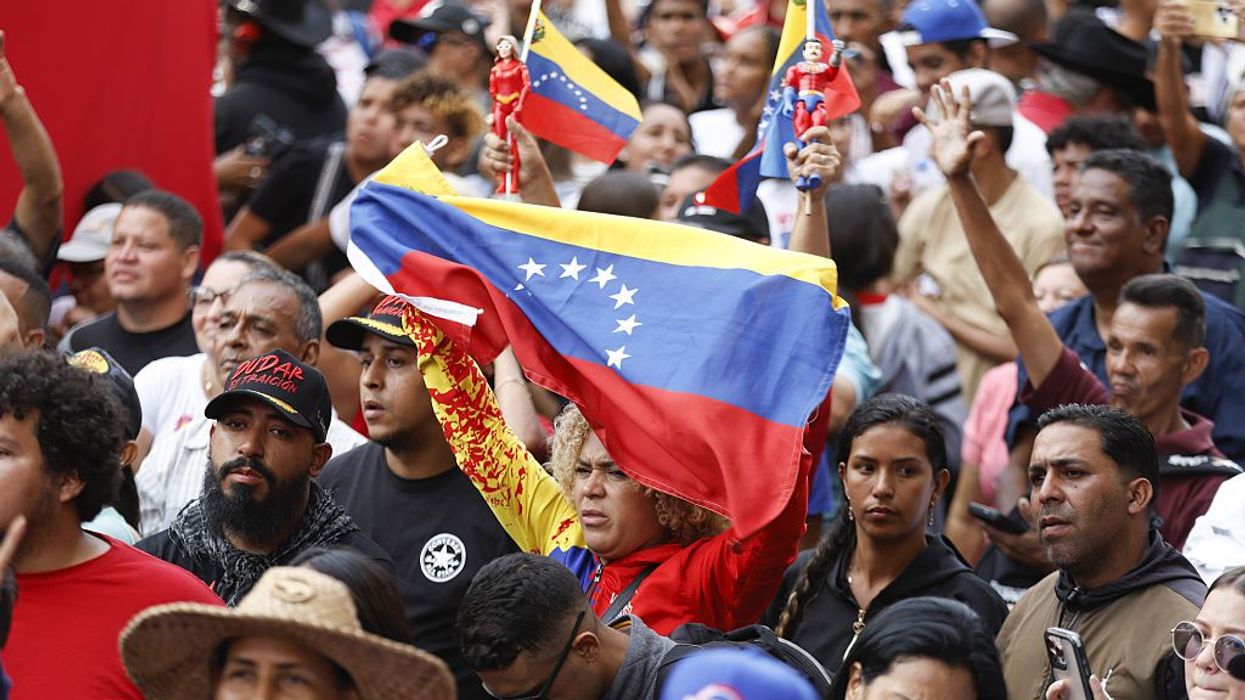April, 23 2013, 03:56pm EDT

CCR Submits Field Research to Senate by Yemeni and Human Rights Advocates on Civilian Impact of Targeted Killing Operations
First-Hand Stories of Victims Shed Light on Human Cost of Strikes
WASHINGTON
Today, the Center for Constitutional Rights (CCR), Yemeni human rights organization HOOD and the Swiss-based Alkarama submitted new testimony to a Senate Judiciary Sub-Committee that is holding a hearing this afternoon on the Obama administration's targeted killing program. The submission provides accounts of a sample of five strikes carried out in Yemen in 2012 and 2013 based on unpublished field research conducted by the HOOD and Alkarama, which included visits to the sites of the strikes and interviews with victims. Some of the strikes examined resulted in the highest civilian casualty tolls in recent years.
"Today's hearing is an important opportunity to shine a spotlight on a program that has already left thousands of people dead and injured, and has long needed greater scrutiny. The personal stories in our submission provide a glimpse of the human toll of these strikes," said CCR Senior Attorney Pardiss Kebriaei. "The administration has so far avoided accountability for its actions by withholding all but what it wants the public to hear, resisting disclosures of information even to members of congress tasked with oversight, and opposing judicial review of violations." Ms. Kebriaei is a lead counsel in the joint Center for Constitutional Rights and ACLU lawsuit challenging the targeted killing of three U.S. citizens in Yemen, including 16-year-old Abdulrahman Al-Aulaqi, Al-Aulaqi v. Panetta.
The submission's accounts verify news reports of particular strikes and provide eye-witness interviews. One of the strikes documented occurred on September 2, 2012 in the Al-Bayda' governate in southern Yemen. U.S. aircraft fired on a truck carrying 14 passengers returning to their village at midday. The strikes killed 11 people, including three children ages 12 and 13. A surviving victim, who suffered severe burns and injuries, recounted how one of the "planes" came close and should have seen that there were women and children in the truck. "Why did they do this to us? Why do Americans want to kill us?" he asked. "Are we not people like they are?"
Said HOOD attorney Abdulrahman Ali Barman, who conducted some of the field research (translated from the Arabic), "When I visited the regions of families of the drones' victims, I was faced with a question that was asked by everyone in those areas: why are Americans killing us? What did we do to them? And another sad question that I was asked by many: Are we humans? Do we have rights? Who can help us achieve justice from America's actions? We live in hell hearing the rumble of drones. Our children live under severe psychological stress. I found myself for the first time unable to answer their questions, and I, too, found myself asking, why are Americans are killing us?"
The interviews also reveal the psychological terror of being subjected to a continuous assault by drones and aircraft. In another witness account, following a strike on August 29, 2012 in the Hadramout province in southern Yemen, a relative of one of the victims explained, "Just hearing the sound of these planes sends terror into the souls of people. A person leaves his house in the morning and he looks right and left, not knowing from where a blow might come that would be his end. This psychological state is unbearable for people to live in. This by itself causes terror."
While the administration continues to claim that its program has resulted in few civilian casualties, it has yet to disclose its count of those killed and injured, or its criteria for determining civilians versus "militants" or combatants, among other basic information. It has been reported, for instance, that the administration presumes as a starting point that all males of military age in a strike zone are combatants.
The Center for Constitutional Rights is dedicated to advancing and protecting the rights guaranteed by the United States Constitution and the Universal Declaration of Human Rights. CCR is committed to the creative use of law as a positive force for social change.
(212) 614-6464LATEST NEWS
Retired General Says Hegseth Boat Strike on Shipwrecked Sailors Was a 'War Crime'
"Secretary Hegseth is basically convening everyone to think... this is the kind of thing that happens in war," said retired Lt. Gen. Mark Hertling. "It's not."
Dec 08, 2025
A retired general suggested Monday that the Trump administration’s strike on shipwrecked survivors on September 2 may have been a war crime.
In the face of mounting scrutiny, Secretary of Defense Pete Hegseth has continued to defend what has been described as a "double-tap" strike off the coast of Trinidad, alleging that the two survivors were drug traffickers bound for America who could have still theoretically harmed it in some way despite clinging to the wreckage for their lives following the first strike.
NBC reported this weekend that Adm. Frank "Mitch" Bradley, who oversaw the strikes, told lawmakers that Hegseth had given direct orders for all 11 men aboard the vessel to be killed because "they were on an internal list of narco-terrorists who US intelligence and military officials determined could be lethally targeted.”
Last week, when reports first emerged of a second strike, Hegseth denied that it had taken place, calling it “fake news” before the White House later confirmed and defended the killing of the survivors.
Lt. Gen. Mark Hertling, who served as the commanding general of the US Army Europe from 2011 to 2012, discussed the strikes on Monday in an appearance on MS NOW's (formerly MSNBC's) "Morning Joe."
"It is, in fact, in my view, a war crime," Hertling said.
"Imagine yourself falling off a cruise ship and being asked to hang on to a piece of wood after you've just been struck with a large kinetic round that has killed nine of your 11 copilots on this boat," Hertling said. "It doesn't matter what they're doing at that point."
Hertling suggested that the frequent use of the term "double-tap" to refer to the strike was a misnomer, as was Hegseth's invocation of the phrase "fog of war" to defend the military's actions.
“That’s a term that special operators use when there are two successive rounds at a target to eliminate it, and to get rid of someone who is attacking them,” the general explained regarding the claims of a "double-tap" strike. “This was a restrike, with time between the first strike and the second. That gives you time to figure out what you’re going to do and clear that so-called ‘fog of war.'”
He cited the definition from Carl von Clausewitz, the 18th-century Prussian general and military theorist who coined the term to describe the “uncertainty” of battle.
"Secretary Hegseth is basically convening everyone to think he has been in war for 20 years, and this is the kind of thing that happens in war. It's not," Hertling continued. "What I'll tell you, having been involved in strikes like this on the ground, the only time you consider a restrike is when the enemy continues to fight, and you're continuing to either strike them with artillery or some type of faraway missile. So a restrike like this occurs when you realize the individuals on the ground or in the water are trying to fight back."
Hegseth and Bradley’s defense of the strikes has centered around the idea that even as they floated helplessly on a piece of debris, the victims still posed a “continuing threat” as they could have theoretically called in other traffickers as backup to retrieve them and their cargo.
As of yet, the administration has presented no evidence that the men were calling for backup, and videos of the incident viewed by members of Congress during a closed-door hearing reportedly suggest they lacked any means of communication. Bradley, meanwhile, acknowledged in his Senate testimony that the survivors did not appear to have any radio or communication devices.
Further undermining the Trump administration's argument that the boat posed an immediate threat, Bradley also reportedly told Congress that the ship was not even bound for the US, but for the South American nation of Suriname.
Hertling emphasized that the two men were shipwrecked on "a piece of debris floating in the middle of the Caribbean," adding that "these individuals are not going to go anywhere, which will become clear with the film," though Hertling acknowledged that he had not personally seen it.
In recent days, leading Democrats, as well as some Republicans in Congress, have called for the release of the video, which House Permanent Select Committee on Intelligence Ranking Member Jim Himes (D-Conn.) described last week as “one of the most troubling things I’ve seen in my time in public service.” Himes said that while the video showed the men were carrying drugs, “they were not in a position to continue their mission in any way.”
The strike was the first in a months-long campaign of extrajudicial bombings by the Trump administration on boats that they have claimed without evidence have contained drug traffickers bound for the US. At least 87 people have been killed in the two dozen strikes since September. Some of those killed in the strikes were later reported to have been ordinary fishermen, and others who had nothing to do with the drug trade.
While focus has been centered on the details of the September 2 strike in recent days and Hegseth's role, experts have emphasized that the entire boat-bombing campaign is illegal.
"The initial attack was illegal too,” said Kenneth Roth, the former longtime director of the advocacy group Human Rights Watch, on social media last week. "Whether Hegseth ordered survivors killed after a US attack on a supposed drug boat is not the heart of the matter. It is blatantly illegal to order criminal suspects to be murdered rather than detained. There is no 'armed conflict' despite Trump's claim."
While the "Morning Joe" segment focused on the question of whether the second September 2 strike was a war crime, some legal experts have said those involved in ordering and carrying out that attack and the other bombings could actually be liable for murder under US law, since Congress has not authorized an armed conflict in the Caribbean.
Keep ReadingShow Less
After Trump Vow to Intervene, Kushner Linked to Paramount's Hostile Bid for Warner Bros.
"The correct option is neither Paramount nor Netflix buy Warner," said one antitrust advocate.
Dec 08, 2025
Paramount Skydance on Monday launched a hostile bid to take over Warner Bros. Discovery shortly after US President Donald Trump publicly expressed skepticism of Netflix's proposed deal to acquire parts of the media company—and pledged to intervene in the federal review process.
"It is a big market share, there’s no question about it," Trump said late Sunday of Netflix's proposed $83 billion purchase of Warner Bros. Discovery's (WBD) film studio and streaming business.
"I’ll be involved in that decision," the president added.
Hours after Trump's comments, Paramount CEO David Ellison—the son of billionaire GOP megadonor and close Trump ally Larry Ellison—announced the hostile bid to buy WBD, attempting to subvert the Netflix deal by taking an all-cash, $30-per-share offer directly to Warner Bros. shareholders.
Observers expressed alarm over the seeming coordination between the president and Paramount's chief executive as the fight over Warner Bros. escalates. Trump reportedly favored Paramount to win the bidding war for WBD, which owns CNN, HBO Max, and other major assets.
Axios reported Monday that "Affinity Partners, the private equity firm led by Jared Kushner, is part of Paramount's hostile takeover bid for Warner Bros Discovery, according to a regulatory filing."
"Affinity Partners was not mentioned in Paramount's press release on Monday morning about its $108 billion bid," Axios noted, "nor were participating sovereign wealth funds from Saudi Arabia, Abu Dhabi, and Qatar."
Ellison was reportedly at the White House last week urging the Trump administration to block Netflix's bid for WBD.
Speaking to CNBC on Monday, Ellison said that "we've had great conversations with the president about" Paramount—which controls CBS News thanks to a merger that the Trump administration approved—potentially becoming the owner of CNN, a frequent target of Trump's vitriol.
CNBC: Do you think the president embraces the idea of you being the owner of CNN given his criticism for that network?
DAVID ELLISON: Ah -- we've had great conversations with the president about this but I don't want to speak for him in any way, shape, or form pic.twitter.com/FdwBzfP3eO
— Aaron Rupar (@atrupar) December 8, 2025
Nidhi Hegde, executive director of the American Economic Liberties Project, said in response to Ellison's remarks that "the correct option is neither Paramount nor Netflix buy Warner."
"The president inserting himself in the deal is obviously problematic, regardless of the parties involved," said Hegde. "If Netflix’s Ted Sarandos, who Trump called a great person, finds a way to appease him, that is also not good!"
US Sen. Elizabeth Warren (D-Mass.) expressed similar concerns about Trump's potential corruption of the regulatory process. The proposed Netflix deal is expected to face a review by the US Justice Department's Antitrust Division, where top officials were recently ousted for "insubordination" amid criticism of agency leaders' corporate-friendly approach to merger enforcement.
"Is that an open invite for CEOs to curry favor with Trump in exchange for merger approvals?" Warren asked after Trump pledged to insert himself into the Netflix-WBD review process.
"It should be an independent decision by the Department of Justice based on the law and facts," added Warren, who called the Netflix-WBD deal "an anti-monopoly nightmare."
Keep ReadingShow Less
Top Brazilian Official Warns Trump of 'Vietnam-Style' Regional Conflict If He Attacks Venezuela
"The last thing we want is for South America to become a war zone," said Celso Amorim, chief foreign policy adviser to Brazilian President Luiz Inácio Lula da Silva.
Dec 08, 2025
A top Brazilian official is warning President Donald Trump that a US military attack on Venezuela could easily spiral out of control into a "Vietnam-style" regional conflict.
Celso Amorim, chief foreign policy adviser to Brazilian President Luiz Inácio Lula da Silva, said in an interview published on Monday by the Guardian that a US military strike on Venezuela would inevitably draw nations throughout Latin America into an armed conflict that would be difficult to contain.
"The last thing we want is for South America to become a war zone—and a war zone that would inevitably not just be a war between the US and Venezuela," he said. "It would end up having global involvement and this would be really unfortunate."
Amorim added that "if there was an invasion, a real invasion [of Venezuela]... I think undoubtedly you would see something similar to Vietnam—on what scale it’s impossible to say."
While acknowledging that Venezuelan President Nicolás Maduro is disliked by many other South American leaders, Amorim predicted that even some of Maduro's adversaries would rally to his side in the face of destabilizing military actions by the US government.
He also predicted that anti-US sentiment would surge throughout the continent in the event of an invasion, as there is still major resentment toward the US for backing right-wing military coups during the Cold War in Chile, Brazil, and other nations.
"I know South America," he emphasized. "Our whole continent exists because of resistance against foreign invaders."
The Trump administration in recent weeks has signaled that it plans to launch attacks against purported drug traffickers inside Venezuela, even though reports from the US government and the United Nations have not identified Venezuela as a significant source of drugs that enter the United States.
The administration has also accused Maduro of leading an international drug trafficking organization called the Cartel de los Soles, despite many experts saying that they have seen no evidence that such an organization formally exists.
Trump late last month further escalated tensions with Venezuela when he declared that airspace over the nation was "closed in its entirety," even though he lacks any legal authority to enforce such a decree.
The Washington Post reported on Monday that Maduro is remaining defiant in the face of US pressure, as he is refusing to go into exile despite the threat of an attack on his country.
According to the Post's sources, Maduro's inner circle of allies "shows no signs of imminent collapse," even as he has limited his public appearances and beefed up his personal security amid fears that he could be the target of an assassination attempt.
Keep ReadingShow Less
Most Popular


